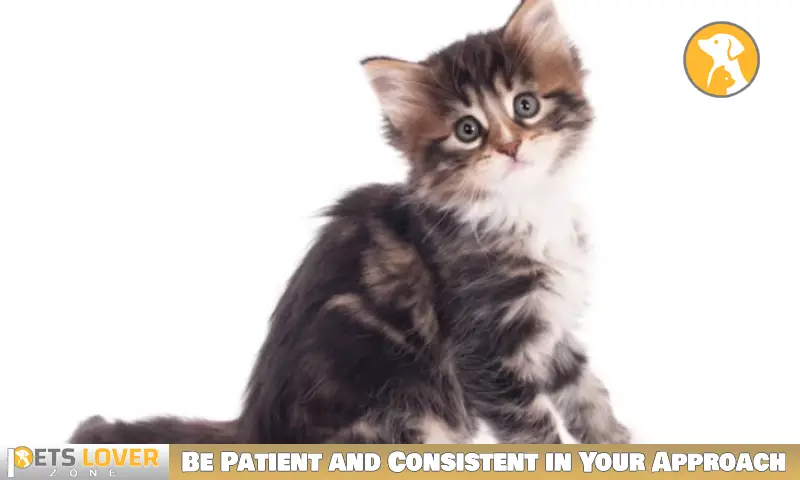Kitten nursing can be a real issue for cat owners. It is a natural part of kitten development and bonding, however, occasionally it can be taken too far. If the behavior is not curbed, it can lead to serious health risks, especially for the kitten being nursed.
It’s important to understand that kittens that nurse on their siblings are not being aggressive or acting out in an inappropriate manner; it’s simply a natural instinct. Thankfully, there are steps you can take to effectively stop the behavior without harming either of your feline friends.
In this guide, we’ll explore the key methods you can use to disperse kitten nursing without putting your cat’s family at risk of harm. We’ll cover topics such as implementing schedules and environmental changes to break the habit of excessive nursing and keep your cats safe in the process.
Why Kittens Nurse on Each Other
Kittens naturally look to their mother and littermates for comfort and reassurance. Nursing is normal behavior that helps kittens develop a healthy immune system, thanks to the antibodies in their mother’s milk. Kittens typically nurse or suckle until they are four to six weeks old, although some may continue to nurse up to 12 weeks of age.
Nursing between siblings also helps kittens bond with each other. Nursing not only provides a feeling of security that kittens rely on as they grow, but it also teaches them how to be gentle with one another—all through the act of nursing one another!
At the same time, it’s important for owners to be mindful of how long kittens are nursing so that their health can remain optimal during this vital stage of development. Kittens should not be weaned before three or four weeks old; allowing them to nurse beyond this age can help ensure they receive all the nutrients and antibodies that their still-developing bodies need.
How to Gently Discourage Nursing Behavior

It may seem cute or endearing when kittens nurse on each other, but it’s generally not ideal behavior and should be discouraged. Kittens may have been weaned too early or orphaned, leading them to inappropriately suckle on their siblings.
Fortunately, there are some easy solutions to preventing unnecessary nursing behavior. The most important step is to provide the young cats with plenty of toys and playtime, which will give them something more productive to do with their mouths. Additionally, if you notice a kitten starting to nurse on their sibling, you can gently push them away or distract them with a toy. Doing this consistently should help discourage future instances.
Most kittens will outgrow the behavior altogether as they mature and start eating solid food, but in more extreme cases, it might be necessary to separate them for a few hours during the day. Make sure that the cats are never without proper food and water during any separation periods.
Provide Separate Food and Water Bowls for Each Kitten
Cats naturally associate water sources with food sources, so providing separate water and food bowls for each kitten will help discourage them from nursing each other. The recommended distance between the two is 3-5 feet, so if possible, place them in different rooms. If this is not an option for you, at least try to move one of them farther away.
It is also recommended that each kitten have their own bowl – whether they are siblings or not – to make sure they have enough room to comfortably eat without feeling territorial. This can also provide peace of mind that each kitten has access to the nutrition they need without having to compete with their siblings for resources.
By providing a separate water bowl and food bowl for each kitten, you can successfully stop them from nursing each other without causing any harm.
Give the Kittens Their Own Space
When kittens nurse on their siblings, it’s often a sign that they are not getting enough of their own personal space. Cats are a more solitary species, needing more personal space than other pets. This means having multiple feeding stations, separate bedding areas, and plenty of toys and games split up between the kittens. Forcing them to socialize can cause them to be scared and aggressive – it’s best to make sure they are free to take breaks from each other as needed.
Providing each kitten with its own area helps to create a sense of safety, allowing them to feel secure when apart from one another. This can be anything from scratching posts or elevated ledges for individual playtime or perching, to simply providing a separate area for each kitten to retreat from the others.
Finally, you can make this extra special by leaving treats in specific areas – each kitten will have their own favorite spot and will soon learn to recognize it as their safe space.
Redirect the Kittens’ Attention
Kittens can sometimes be distracted from their unwanted behavior, which is why it’s important to redirect kittens from nursing by providing them with alternative activities. Redirected aggression occurs when a cat is aroused by another animal, person, or event but is unable to direct aggression toward the stimulus.
One way to do this is by providing the kitten with toys that draw attention away from their sibling and towards another activity, such as playing or scratching. To discourage kittens from scratching in inappropriate areas, it’s important to provide plenty of alternative options in the form of scratching posts.
To redirect cats from aggressive behavior, startle them and refocus their attention with a toy or a Pet Corrector – an air-powered device that emits a loud noise that cats find unpleasant. When used correctly, this can help kittens stop nursing their siblings, while at the same time ensuring physical harm does not occur and both animals remain unharmed.
Make the Nursing Less Comfortable
You can make nursing less comfortable for the kitten by using a physical deterrent. Bitter apple is one such solution, as it imparts a sour taste that dissuades cats from licking and biting it. Simply spray the bitter apple on the area around your kitten’s siblings or any other surface they may nurse on, and watch for results.
At the same time, provide affection and treats for your kitten. This will help reduce their stress levels as well as remind them that you are there and available to provide comfort. The ultimate goal is to get your kitten to stop nursing without harming them or their siblings in the process, so remember to be patient and reassert your position as the family’s primary source of security and comfort.
Gently Discourage Nursing Behavior and Reward When Not Nursing
When kittens begin nursing each other, it’s important to take quick action to discourage the behavior. Kittens should be separated for a period of time each day, as this will help stop them from continuing to nurse each other. When they are together, positive reinforcement can be used to encourage social behavior. Treats like catnip, shredded chicken, or cheese can help distract them and give them a positive association with being around their siblings.
It’s important to remember that non-nutritive sucking can provide comfort to kittens and should be encouraged. When kittens are observed nursing on a blanket or toy rather than their siblings, you can reward them with treats or vocal praise to reinforce the desired behavior. With consistent encouragement and gentle discouragement of inappropriate behavior, the feline family will learn proper socialization techniques in no time!
Limit Nursing Opportunities by Separating Kittens
If you notice the nursing kitten is beginning to harm their sibling, separating them can help reduce this behavior. The older kitten may start to nurse excessively if they are not separated from their siblings or their mother. Kittens can nurse up to 12 weeks old and will continue to do so until they are separated from their mother or she is “done with it”.
Separating kittens allows them to become more socialized and independent of their mother. Furthermore, it limits nursing opportunities and can help decrease the amount of time that one kitten spends nursing the other.
It is important to remember that separating kittens should be done at a young age and made into an enjoyable experience for them. Provide them with multiple places to sleep, play, get affection, eat, and drink so that they do not become isolated. This will help ease any anxiety about being apart from their siblings for extended periods of time.
Make Sure All Kittens Are Eating Solid Food
It is essential to ensure all kittens are eating solid food properly before trying to stop nursing each other. Introducing solid food at 3-4 weeks of age is recommended, and kittens should be fed a combination of soft, wet food and/or dry kibble with added water to soften it. To help encourage kittens to eat, place moistened food near their faces; this serves as an attractant and will stimulate their appetites.
If one or more of the kittens are still not eating solid foods after several days, contact your vet for advice on how to proceed. Once all the kittens are able to eat fish, meat, or commercial kitten formula and are no longer totally reliant on their mother’s milk, you can begin implementing other strategies for weaning them from nursing on each other.
Be Patient and Consistent in Your Approach

When it comes to getting your kittens to stop nursing on each other, it’s important to recognize that patience and consistency are key. Initially, you may need to separate the two cats periodically while they are still in their early stages of life. This will help both kittens learn the boundaries of acceptable behavior.
Additionally, it’s important to make sure your kittens are gaining weight at a healthy pace. If one of them is underweight, supplements may be necessary for weight gain. The best way to ensure this happens is by carefully monitoring their individual weights on a weekly basis and consulting with a veterinarian on the best course of action for supplementing their diet.
It may take some time for your kittens to adjust and learn new behaviors, but with patience and consistency in your approach, you will be able to stop them from nursing each other without harming them in the process.
Conclusion
Kittens learn to nurse their siblings due to a lack of attention and being neglected by their mother. The best way to stop kitten nursing without causing any harm is to provide the kittens with proper nutrition, ensure they learn to drink from a bowl and play with them. Additionally, providing them with warm and cozy sleeping areas as well as lots of toys and activities can also minimize the chance of them nursing each other. Finally, separating the kittens for short periods of time can also be beneficial in stopping the nursing. Ultimately, with patience, care, attention, and some trial and error, you can effectively stop kittens from nursing siblings without harming them.





